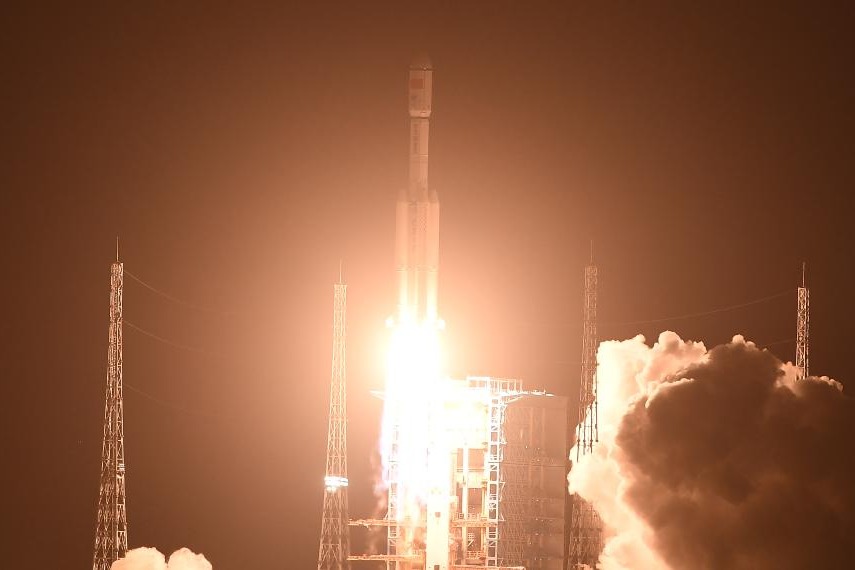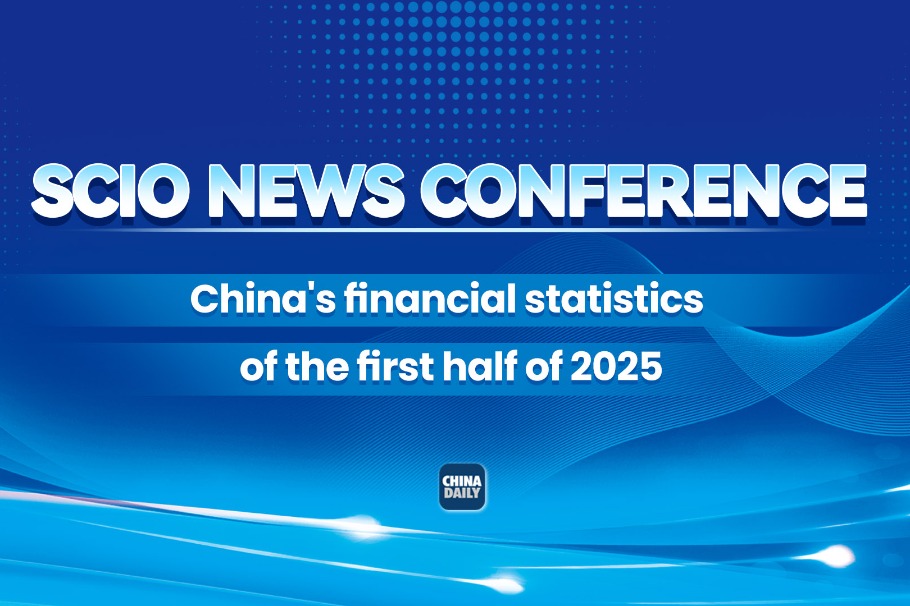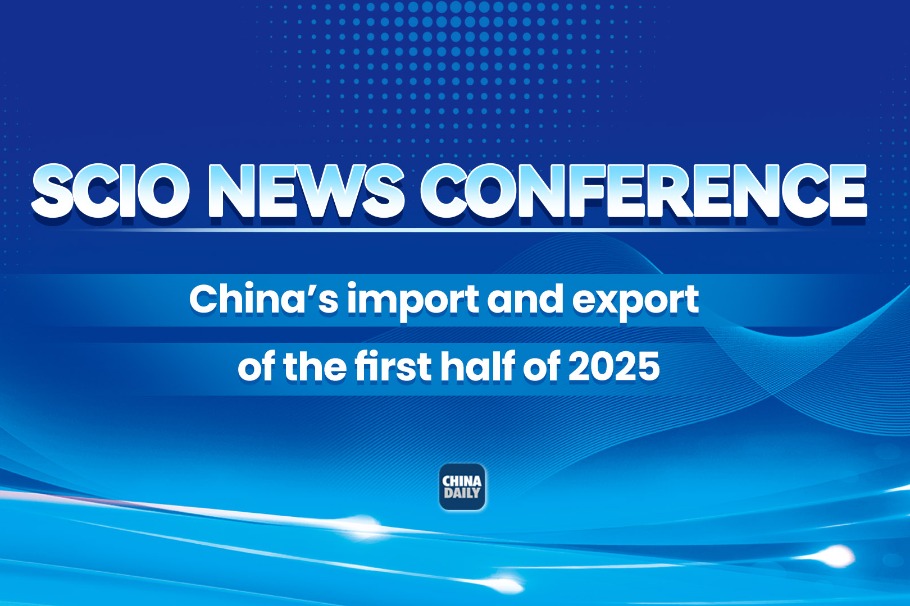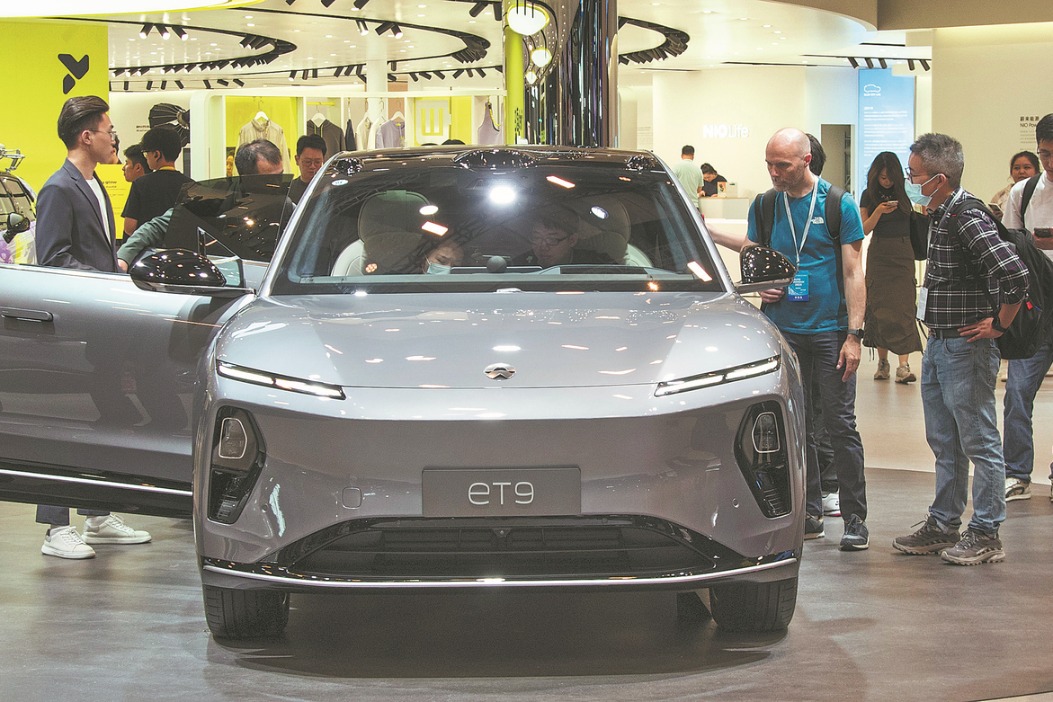Shared vision calls for joint actions


China and the EU share aligned visions on climate actions and should work together to advance mutual green development
This year marks the 50th anniversary of the establishment of diplomatic relations between China and the European Union. Over the past five decades, despite recurring frictions and differences, China and the EU have made substantial progress in a wide range of areas, including trade and the economy, politics, science and technology, and people-to-people exchanges. In recent years, the strategic importance of the China-EU relationship has grown significantly, yet it is also facing increasing challenges. How should both sides navigate and shape the next 50 years of their relations?
Economic and trade relations have long been the most important bond connecting China and the EU.After decades of close cooperation, the two sides have forged a deeply interdependent economic partnership. Although bilateral ties have encountered some setbacks in recent years, the fundamental need for economic cooperation between China and the EU remains unchanged.
Currently, China and the EU are each other's second-largest trading partners. According to Chinese statistics, bilateral trade in goods reached $785.8 billion in 2024. On the investment front, EU data show that by the first quarter of 2024, China's investment in the EU totaled 143 billion euros ($167.96 billion), while EU investment in China reached 177 billion euros. The EU's top imports from China include telecommunications equipment, electrical machinery and related devices, while its main exports to China consist of motor vehicles, pharmaceuticals and other types of machinery. China's top three sectors for investment in the EU are automotive, pharmaceuticals and biotechnology, and information and communication technologies. Conversely, the EU's leading sectors for investment in China are automotive, basic materials and machinery.
In the 1970s, a wave of "green politics" emerged in Europe, propelling the region to become a leader in global environmental protection and climate governance. In December 2019, the European Commission released the European Green Deal, aiming to make Europe the world's first "climate-neutral "continent by 2050. Subsequently, leaders of all 27 EU member states agreed to raise the EU's greenhouse gas emissions reduction target for 2030 from 40 percent to at least 55 percent compared with the 1990 levels.
China and the EU share aligned visions on climate action and green development. On Sept 22, 2020, President Xi Jinping announced at the 75th session of the United Nations General Assembly that China aims to peak carbon emissions before 2030 and achieve carbon neutrality before 2060. From 2005 to 2018, China and the EU jointly issued five statements on climate cooperation. In 2021, the establishment of the China-EU High Level Environment and Climate Dialogue further elevated the importance of environmental collaboration in bilateral relations. By the end of 2024, China and the EU had held five rounds of vice-premier-level dialogues on climate change and environmental protection. Their shared commitment to green development has laid a strong foundation for deepening cooperation in this domain.
China and the EU both support multilateralism and recognize the essential role of the UN and other multilateral institutions in global governance and addressing global challenges. Even as the EU and its member states face internal and external difficulties, China continues to view Europe as a vital pillar in a multipolar world and openly supports European integration and the EU's strategic autonomy.
Chinese leaders have repeatedly expressed the willingness to strengthen coordination with the EU in multilateral affairs and to jointly uphold the international system with the UN at its core, the international order based on international law, and the basic norms of international relations based on the purposes and principles of the UN Charter. Together, China and the EU should work to safeguard global stability and prosperity while opposing hegemonism, unilateralism and the so-called decoupling or de-risking that threaten open cooperation.
However, the EU now perceives China as not only a partner but also an economic competitor in the pursuit of technological leadership, and a systemic rival. While China, acknowledging the growing competitive dimension in bilateral relations, continues to regard the EU as a valued partner.
Due to the EU's trade deficit with China and its concerns over being outpaced in certain technological fields, it has introduced several economic protectionist measures. From 2019 to February 2025, the EU launched 51 trade remedy investigations against China, including 42 anti-dumping cases, eight anti-subsidy cases and one safeguard measure. Since 2023, the term "de-risking" has gained prominence in the EU's policy discourse on China and become a central theme in discussions on bilateral economic ties.
In June 2023, the European Commission released the European Economic Security Strategy, marking the elevation of "de-risking" to the level of a security strategy. This strategy outlines three key objectives: enhancing the EU's economic competitiveness (including strengthening the Single Market, supporting resilient economies, investing in skills, and promoting R&D and industrial capabilities);diversifying partnerships (through new trade agreements and stronger multilateral institutions such as the World Trade Organization); and guarding against so-called economic security risks (including outbound investment screening and export controls). Although the strategy does not explicitly name China, its focus is unmistakably directed toward managing relations with China. China has thus become a central concern under the EU's de-risking and economic security agenda.
Moreover, external factors such as the Ukraine crisis and the United States' policies toward China have a significant impact on the EU's approach to China.
Looking ahead, China-EU relations will remain a crucial component of each side's foreign policy agenda. Both sides should strive to resolve their trade and economic disputes through dialogue and negotiation, and avoid further escalation or spillover of frictions. In response to the EU's "de-risking "policies toward China, the two sides should prioritize trust-building. China has clearly stated its willingness to regard the EU as a key partner in economic and trade cooperation, a priority partner in scientific and technological cooperation, and a trusted partner in industry and supply chains cooperation.
On the basis of traditional cooperation, the two sides should expand their collaboration into emerging areas such as the digital economy, green technologies, new energy and artificial intelligence, creating new engines for growth. As China accelerates its drive toward new industrialization and digital transformation, the potential for bilateral cooperation is immense.
China and the EU differ in terms of historical background, development stages and political systems. These differences should be acknowledged and respected. As Donald Trump returned to the White House in early 2025, the US is disregarding existing international mechanisms and vigorously pursuing "America First" unilateralist policies. The importance of strengthening China-EU multilateral cooperation has therefore become even more pronounced.
Recently, Chinese Foreign Minister Wang Yi visited Germany, France, Belgium and the EU headquarters to participate in several rounds of high-level China-EU dialogues. These efforts are expected to pave the way for successful leaders' meeting and to strengthen confidence in the future of China-EU relations for the next 50 years.
The author is a lecturer at the Country and Area Studies Academy at Beijing Foreign Studies University. The author contributed this article to China Watch, a think tank powered by China Daily.
The views do not necessarily reflect those of China Daily.
Contact the editor at editor@chinawatch.cn.

































